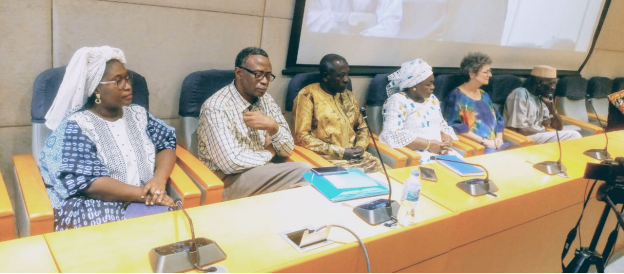By Biran Gaye
The Ministry of Basic and Secondary Education (MoBSE) has validated the maiden language policy that seeks to incorporate local languages into the education sector.
Conceived to introduce dominant native languages into the system, the policy intends to integrate the languages in the early child education and primary education levels when scrutinized and adopted by cabinet and the legislature.
Funded by the World Bank and held at the international conference centre in Bijilo, the one-week validation convergence reviewed the 2023 report of language mapping of the public schools in the country.
The validation programme brought together Permanent Secretary MoBSE, regional education directors, veteran educationalists and teachers, and language advocates.
In her closing remark, Basic Education Minister Hon. Claudiana Cole expressed government’s commitment in integrating the language policy in education into the sector.
“We are going to make it a reality; we are going to institutionalized it,” Minister Cole said, acknowledging the World Bank’s support in preparing and reviewing the draft policy.
The Permanent Secretary at the Ministry of Basic and Secondary Education EbrimaSisawo said learning through one’s native languages impacts learning outcomes as it is scientifically proven. He commended participants for reviewing draft policy.
For her part, Madam Emily Joof, a Representative of the World Bank, reassured the bank’s continuous support to the full implementation of the language policy as it seeks to improve learning outcomes through the use of first language (L1). She added that they commit to provide quality and equitable education for every child in the country.
Speaking on the sidelines at the forum, the Director of Curriculum Research Evaluation and Development Directorate (CREDD) under the Ministry of Basic and Secondary Education (MoBSE) told Foroyaa that the policy document advocates the use of local languages to enhance participatory learning in the acquisition of language second (L2).
“Naturally, it is important for children to receive instructions in the local languages for their foundational learning because they are comfortable with them,” Director MomodouJeng said.
He added: “However, if they are only taught in the L2, it creates learning poverty because children would not able to participate due to communication challenges.”


















